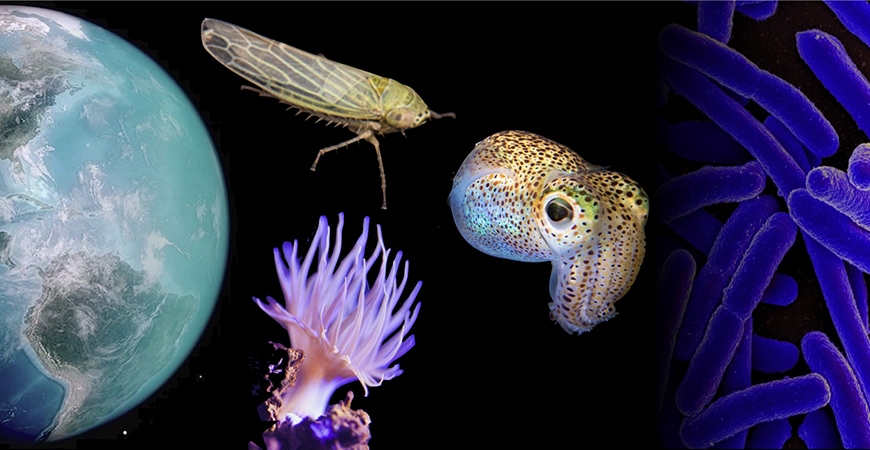UC Merced has received a $12.5 million grant funded by the National Science Foundation (NSF) to develop the Biology Integration Institute (BII): INSITE — the INstitute for Symbiotic Interactions, Training and Education — a research collaborative that aims to expand the fundamental knowledge of symbioses and inform immediate and long-term conservation strategies in the face of climate change.
A multi-disciplinary team from UC Merced, Michigan State University (MSU) and Resilient Oceans will look at how climate change will impact ecosystems through a symbiotic lens.

“There’s a lot of funding directed toward climate change, but everyone is looking at what you can see. We wanted to approach this problem through a microbial lens, so we proposed looking at symbiotic interactions,” the project’s lead principal investigator, Department of Molecular and Cell Biology Professor Michele Nishiguchi, said. “Microbes are invisible, and they are important because they are on everything.”
BII-INSITE officially began Sept. 1 through a five-year agreement with NSF. As one of the campus’s largest institute grants, it will create a framework for how researchers in the field and laboratory can evaluate and understand the impact of climate change broadly on interdependent species. It will also provide critical information to help guide environmental managers to, and, ultimately shape policies locally, nationally and globally.
